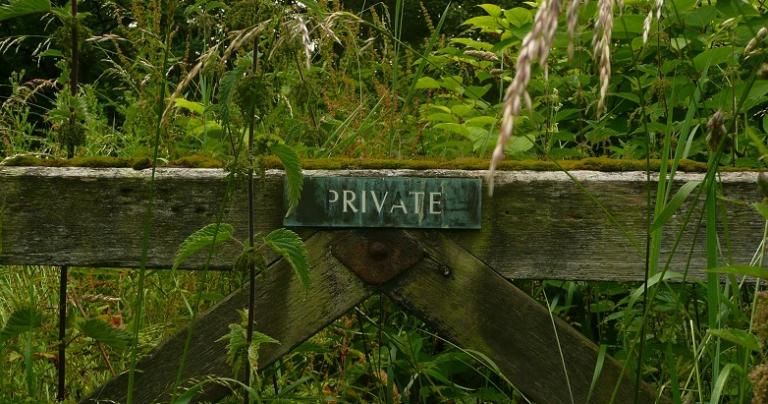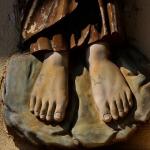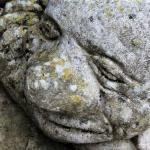Hello, beautiful creatures.
Last October, in a piece about consent in magical praxis, I wrote about a sabbatical I took a few years ago, both from my personal practice and from the Pagan, polytheist, and magical practitioner communities as a whole. One of my primary reasons for leaving had to do with the p-word community’s relationship with power and consent, which can be charitably described as “dysfunctional.” As I wrote then:
The dominant discourse in those communities promulgated what I saw as some incredibly ill-informed, unhealthy, and actively dangerous ideas about power. I saw power deemed to be a moral value in itself, absent any accountability around how it was exercised, and a lack of honesty about who held power, to what end.
In tandem with that criticism was an accompanying or underlying issue which took a while longer to unpack. There was a loose thread in the p-word discourse around what it meant to “be a community” which I couldn’t locate, but which nagged at me until I found it and started tugging on it. Once I did, the whole notion of “the Pagan community” kinda unraveled in my hands.
One of the foundational elements of the “Pagan community” myth as I learned it in the mid-80s was the community’s idea of itself as welcoming, accepting, and inclusive. Whatever your quirks, idiosyncrasies, or outright weirdnesses were, the myth ran, you could find a home for them within Paganism. After all, this was a community formed by iconoclasts: hippies, beatniks, visionaries, mystics, dreamers, and other folks marching to their own drummers, following their own flavors of bliss.
For someone raised in a repressive culture with no room for non-normative expressions of spirituality, philosophy, sexuality, or gender—such as, say, most of the United States in the 20th century—encountering this kind of radical inclusivity would be an incredibly liberating experience. Certainly it was for me, when I first found Paganism in the mid-Eighties. As a Pagan, you could believe whatever you believed, and no one would tell you that you were bad, sinful, or wrong for doing so. It was… well, magical.
The trouble is, that kind of radical inclusivity also makes it really difficult to develop or enforce shared social norms, standards of behavior, or healthy boundaries.

This is basically fine when we’re talking about matters of individual practice or belief, but it can go downhill in one hell of a hurry when we pull back to see how that principle works in a community setting. The p-word community has grappled with the contradictions and problems inherent in building unity around both inclusivity and individualism since, well, since there was such a thing as “the community.” After all, a community is a group of people united by sharing something in common—an interest, a history, an identity, and it’s difficult to share “everyone does their own thing” in common as a unifying principle. It’s even more difficult to hold that principle while insisting that everyone has to follow the same rules and abide by the same set of communal ethics.
And so, of course, we find ourselves faced with a “community” which not only doesn’t share our values, but which holds values we find antithetical to our own. The Pagan and Heathen communities have grappled with racism for decades, both the background-radiation racism of American culture and the overt, codified white supremacy of groups like the Asatru Folk Assembly. Communities have had to work towards an ethical basis for excluding such ideologies and groups, one that doesn’t rely on a shared set of standards… because such standards don’t exist.
Of course, it’s possible to develop ethical bases for opposing and excluding groups and ideologies that espouse hate. Movements such as Heathens United Against Racism and The Asatru Community have explicitly aligned themselves against such ideologies, and the number of Heathen and polytheist groups denouncing the AFA for its racist, homophobic, and transphobic stances is heartening. It’s also worth noting that these groups and movements opposing hatred are grounding their opposition in the texts and traditions they share in common, rather than relying on the presumption of a shared universal ethic. They are, in a very real way, behaving as a community. They are establishing a commonality of belief and identity, and part of their understanding of that belief and identity is its exclusion of racism, sexism, homophobia, and transphobia from their standards of acceptable behavior.
They are saying, in short, “This is who we are, and this is what we believe. If you would stand with us, we welcome you, but these are the ethical boundaries of our identity. If our opposition to hatred excludes you, so be it.”
“But wait,” the argument begins, “that’s being exclusive! Isn’t that the same thing the AFA is doing?”
No. No, it isn’t, and here’s why. Readers of my previous posts may recall my love for Karl Popper’s paradox of tolerance, on which I dilated at some length in this piece.
The ideology of the AFA is rooted in intolerance and bigotry. They are literally a hate group, and that hatred—of people of color, of queer people, of trans people—is the basis of their exclusion. By contrast, the Heathens and polytheists rejecting them are excluding their hatred and intolerance. As my partner summed up Popper’s paradox, “an intolerance of bigotry is the only thing that protects us from bigotry1.” That’s an act rooted, not in hatred and bigotry, but in their rejection: in love.
I think the rest of the p-word communities could learn a great deal from these groups, not only about opposing hateful ideologies in their midst, but about what it means to be a community. There inevitably comes a point at which we must make a choice about who we are, individually and collectively. We must choose what we stand for, and who we stand with. This doesn’t have to mean eroding differences of praxis or belief for the sake of inclusivity, nor does it have to mean disrespecting those differences to bolster our identities. It does, however, mean being clear-eyed about what behaviors and ideologies we’re willing to tolerate in the name of “being accepting and welcoming.”
More on this line of thought anon. Until then, dear ones, choose wisely. ♥
- If you want to argue that bigotry and hatred deserve airtime in the public square, the “marketplace of ideas,” don’t do it here. I have no patience for it, and I will ban you with a smile on my lips and a song in my heart. I might even whistle a jaunty tune while doing it.












